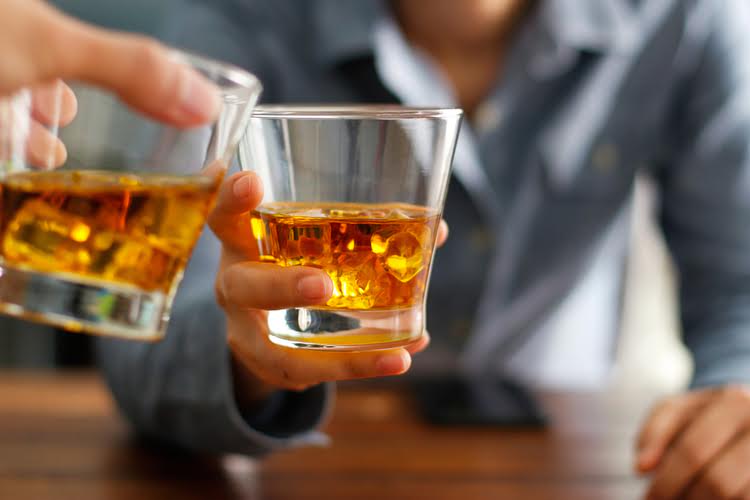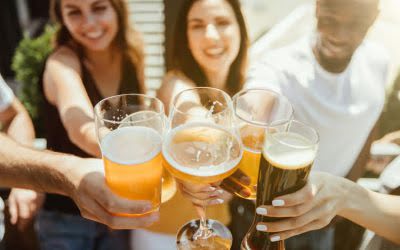You may have a strong urge to eat sweets because they set off dopamine, the same chemical messenger triggered by some drugs. Too little could eventually cause serious learning and memory problems, a condition called Wernicke-Korsakoff’s syndrome. Eat beans, peas, lentils, pork, brown rice, and fortified foods like breakfast cereal.
The digestive system not only requires a mixture of proteins, vitamins and minerals to keep us healthy but it also needs fiber to keep everything moving as it should. Whole grain foods offer this as well as providing a good source of complex carbohydrates which help balance sugar cravings, leaving us feeling fuller for longer. Whole grains help keep our gut healthy which subsequently enables it to absorb other nutrients more successfully. Drug and alcohol abuse severely affects the natural levels of two essential amino acids within the brain, namely tryptophan and tyrosine. These amino acids produce the compounds serotonin, dopamine, and norepinephrine, which are neurotransmitters within the brain. Our mood, mental-clairy, alertness and overall feeling of mental stability and emotional well-being are affected by these neurotransmitters.
How to Get Help And Find Freedom from Addiction
It is also important to remember that supplementation should support, not replace, a balanced diet. A healthy breakfast should include protein, whole grains, and fruit or vegetables. Some good options include oatmeal with nuts and fruit, whole grain toast with avocado and eggs, or a smoothie with spinach, berries, and protein powder. Remember, recovery is a journey, and it’s important to be patient and kind to yourself. If you’re struggling with your diet or have any questions, don’t hesitate to reach out to Nao Medical’s nutrition services.
- Aftercare planning can help to address these post-rehab predicaments.
- Protein is essential for the brain and heart and serves as the building blocks for all the body’s muscles.
Both eating disorders and substance use disorders have similar behavioral patterns, such as strong cravings and a lack of control over consumption despite negative consequences. People with bulimia or binge eating disorders, like those with substance abuse, have intense cravings and feel like they can’t stop during episodes of overeating. Both food and addictive substances become ways of avoiding or numbing unwanted feelings.
Inpatient Alcohol Rehab & Detox Treatment Centers Near Me
It is necessary to draw up not only a competent diet but also to carry out a number of therapeutic measures using various drugs, psychological techniques, and physiotherapy. So better choose a facility carefully, just a random nearest rehab may not be the best option for you. If you don’t know how to find a Native American Addiction Facility, there are a lot of articles on this topic on the internet. The chemicals produced during the absorption of alcohol are similar to dopamine and serotonin, which cheer up. This feeling, together with a huge rush of sugar in the blood, gives us a temporary surge of strength and fun.

Start your morning with a glass of water, and it will help you stay hydrated during the day. At American Addiction Centers (AAC), your treatment team will work with patients prior to their discharge from rehab to create a sustainable aftercare plan. This aftercare plan is put in place to aide in the transition from a more structured treatment period back into the community and to provide guidance that will help the patient maintain their sobriety. The specific range of therapies used in inpatient rehab may differ between treatment centers and according to various patient needs but will likely fit within an organized daily schedule.
Alcohol Recovery Diet: What Should I Eat to Improve my Recovery
Insurance may significantly reduce (if not completely eliminate) the costs for rehabilitation. For example, this person may choose to enter a sober living facility, continue alcohol abuse treatment in an outpatient setting, and/or regularly attend local support group meetings. Someone’s ideal continuing care plan hinges on their recovery progress, their motivation, their current health assessments, and their specific circumstances. A 3 oz serving of dry vermouth contains 105 calories, according to MedlinePlus. And while you’ll generally find it mixed into a martini or a Manhattan, you can save calories by sipping it neat. Some research has found that dry vermouth contains significantly more polyphenols than white wine.

It’s important to note that it’s best to avoid excessively sweet drinks like soda, teas, or juices sweetened with added sugars. If you want something with a bit of flavor, unsweetened green tea is a great choice. It’s also helpful to minimize caffeine intake, as caffeine is a diuretic and can exacerbate dehydration in early recovery. Eating a food with saturated fat, such as peanut butter, is fine in moderation for many people.
Vitamins & Supplements for Alcohol Recovery
Eating healthy is not another faddy diet, it does not mean having to stick to a spartan or dull regime. Embracing a full and balanced diet will not only make you feel better physically but your mental state will improve immeasurably. To this end we have designed the nutritional journey at Flow Recovery Retreat to be a journey which puts you in the driving seat; it’s fun, rewarding and most importantly sustainable. Your long term eating habits will be a guiding light on your road to recovery, the ultimate goal of which being your general physical and mental well-being. The most common dietary deficiencies in alcoholics are vitamin B6, thiamine and folic acid.
- Our program doesn’t treat one condition after the other, but it focuses on the common causes of substance abuse and eating disorders.
- My goal is to live life fully, not to feel deprived and have a 6-pack at all times.
- Fruits in particular are a healthy sweet alternative to sugary foods.
- Since things like soups, stews, and smoothies are always in a liquid form, these types of foods are less strenuous on the digestive system in the beginning.
Healthy whole grains include brown rice, quinoa, oatmeal, barley, whole wheat bread, and whole wheat pasta. Whole grains also help to promote healthy gut bacteria, which supports liver and kidney health, the body’s two most important detox organs. Whole grains are fiber-rich foods that slowly release sugar into a person’s system, alcohol recovery diet which helps to prevent mood swings and keep you feeling fuller for longer. If you find that certain foods trigger you to go on an eating binge, you may want to make a decision to cut those foods out of your diet for good. Like drug or alcohol binges, sometimes food binges can go on for days, or even weeks and months.
B vitamins such as thiamine (vitamin B1) and folate (vitamin B9) are critical for brain function and energy production, which can be negatively impacted by chronic alcohol consumption. Regular supplementation of these vitamins may assist in restoring cognitive function and general vitality. Proteins also provide a feeling of satiety, preventing overeating and helping maintain a healthy weight, which is often challenging during recovery. Balancing your protein intake with other nutrients is important for a balanced diet during recovery.